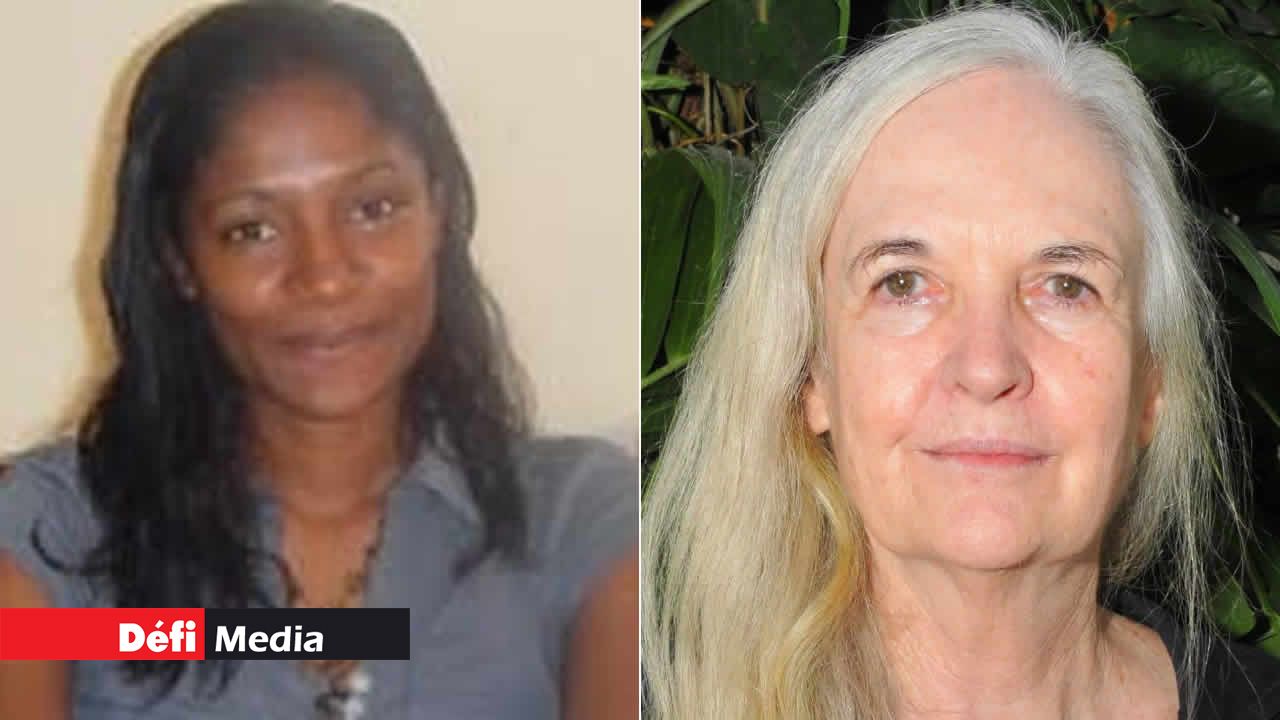
Deputy Prime Minister Bérenger has launched a national debate on electoral reform. Before proposing Electoral Reform it is vital to establish why we propose changes, and what should be best left as it is and why, on the principle “if it is not broken, no need to fix it”.
Remember, too, that the best reforms only come with proper political mobilization, where the quasi-totality of the people, through our parties and organizations, get to participate in the debate leading up to change.
The aim of electoral reform should be to bring in more democracy. For LALIT, this is our aim. This means, in particular, avoiding any traps of decreasing democracy by mistake or by ignorance, or of increasing bureaucracy inadvertently and thus decreasing democracy.
The ideas below have been developed in debate and discussion with hundreds of LALIT people and others over decades, during political work at the grassroots. We have learnt from the democracy practiced in associations, formal and informal, in co-operative shops, in trade unions, and in common fronts amongst the people. We have 300 years of struggle for freedom from slavery and indenture, and modern wage slavery, and for the democracy that helps guard it.
Here are LALIT’s proposals, for discussion, summarized:
The present system has the following faults, amongst others:
1. Qualifications for MPs are anti-democratic and represent colonial remnants.
2. The Legislature (elected depite) which personifies the Republic being a “sovereign democratic” state is dominated by an all-powerful Executive (PM & Cabinet), which descends from the British monarchy.
3. The electorate has no power of revocation between general elections, allowing the Executive Branch to deviate, become corrupt, and end up representing those who finance their parties, not those who elect them to the National Assembly democratically.
4. Island of Rodrigues needs to have an equal number of MPs to Island of Mauritius’ constituencies.
5. Agalega must obligatorily have its own Constituency with one representative. The distance from the main Island compensates for its low number of inhabitants.
6. Chagos, including Diego Garcia, now supposedly sovereign since the Treaty with the UK, must obligatorily have a Constituency the same as Agalega, with one representative.
6. The fact that the best loser system is communal is problematic in many ways, and there is a way to resolve the problem the present communal system purports to address.
5. Nominations made by the Executive are opaque and lead to nepotism.
6. Overspending in election campaigns is the problem. It is undemocratic.
Members of the National Assembly should be subject to revocation by electors in their constituency. This means Ministers, too, come under direct democratic control by electors.
What is Good about the Electoral System
So as not to throw the proverbial baby out with the bathwater, here are good existing traditions:
- Every MP stands for election in a specific Constituency. This is a vital part of our democracy: it is decentralized, and works, with other measures, to prevent the monarchical tendencies of a “presidential-style” Prime Ministership creeping in. It is what permits revocation.
- Political parties have a constitutional and absolute right to exist and need only to register with the Electoral Commissioner for each election. This freedom is a vital element of our democracy. It prevents a bureaucracy developing around some new “Czar” or “Registrar of Political Parties”, and other state-imposed undemocratic, bureaucratic mechanisms – e.g. insisting on parties having compulsory recourse to expensive, often corrupt, chartered accountants – instead of depending on party members simply to control leaders democratically. There is no short-cut to democracy.
- There are not bureaucratic or repressive state controls over parties’ finances, but importantly there are controls over electoral spending. This is of the essence. It needs to be tightened up to be effective.
Democratizing Who can be an MP
We in LALIT have long struggled at the grassroots, and still do, for everyone to be allowed to be elected for Parliament – as a democratic right – and we thus call for the repeal of the colonial language and literacy qualifications the Constitution imposes. We also reject the absurdity of in Parliament speaking only in the languages of the past two colonizing powers, and we support the Speaker’s efforts to introduce Republic of Mauritius Kreol in the National Assembly.
The aim of electoral reform should be to bring in more democracy.
Revocability at different levels
We also propose, inter alia, that all those elected should be revocable by the same “constituency” that elected them. We have been calling for this, as a party, since 1982, so the proposal is one that has stood the test of time. Slowly, all political parties have agreed, some even claim paternity!
It would certainly mean more democracy than exists. It trims the excessive power of the Executive.
Electors in a Constituency need to have right to revoke
Members of the National Assembly should be subject to revocation by electors in their constituency. This means Ministers, too, come under direct democratic control by electors. Any “electoral revocation petition” will need to be based on a specific argument that the Electoral Commissioner considers meets basic standards of rationality. It will also need to meet rigorous levels of integrity, and subject to the Electoral Commissioner checking for forgery, people signing more than once, etc. All Members of Parliament will then know that they can be revoked and this, in itself, will be salutary.
We also reject the absurdity of in Parliament speaking only in the languages of the past two colonizing powers, and we support the Speaker’s efforts to introduce Republic of Mauritius Kreol in the National Assembly.
Leader of the House elected after election results, thus revocable
More democracy also means MP’s, when they first meet after a general election, should immediately after electing a Speaker from amongst themselves, elect the Leader of the House, who then goes to the President to be sworn in as Prime Minister. This MP, being elected by his peers, can be revoked by his peers. The Prime Minister then proposes to the National Assembly, as a block, a Cabinet selected from amongst MPs, for election. Once elected by Parliament, individual Ministers or the Cabinet as a whole, are then subject to revocation by their peers.
Executive Power constrained by National Assembly
Once Ministers, including the Prime Minister, are subject to revocation by the totality of MPs, this means Parliament has more power, relative to the Cabinet or Executive. This means more democracy. It immediately curtails excessive powers of the Prime Minister. The point of revocation is not constant petitions and motions of revocation. The point is that elected people are constantly aware that they are revocable. This changes the balance of forces. Revocation is already practiced in most associations and unions in Mauritius, and has been for generations. For reference, in the UK, there is the right of revocation of MPs (“the right of recall”) and in many US states.
We propose an enlarged Parliament of 21 four-member constituencies plus one MP for Chagos and one for Agalega, plus 20 proportional representation MPs. This is a total of 106 MPs. It will be in proportion to the number of electors for each MP established at Independence, because the population has doubled. More MPs is the most democratic way to spend any public money.
The 20 MPs by “proportional representation” will be taken from a list, in order, prepared by party leaders from amongst all their up to 106 candidates, and submitted to the Electoral Commissioner on Nomination Day. This means every elected person is linked to a constituency, and thus avoids the non-accountable nature of some forms of proportional representation.
This also means the Parliament is stronger, in terms of relative numbers, than the Executive. The number of Ministers should be reduced to 12-15. Junior Ministers should be done away with.
This new balance of forces within the National Assembly will increase democracy by curtailing the powers of the Executive, including the Prime Minister.
The Executive’s proposals for nominations to positions of power should come before a permanent “Parliamentary Permanent Select Committee on Nominations.
End Communal Classification
The four-member constituencies and the 20 PR will allow the communal Best Loser system to be done away with, without fear of unintended communal consequences. In addition, leaders can organize their proportional lists to ensure fair communal representation, representation of women, young people, so-called experts, or simply to ensure their leader is elected.
Lalit has used passive resistance methods for decades, drawing lots for a “community” to fill in on Nomination Day, as a form of protest, while also being able to field candidates.
This proposal does away with filling in a “community” or conducting a loathed communal census.
Each elector will get two ballots: one for electing 4 MPs (first four elected), and the other to choose a party. PR seats will be allocated in the order predetermined by the Party, skipping those already elected by the first-past-the-post election.
The legislation can include a clause to prevent PR nominations actually overturning an elected majority, should there be one.
Power to make nominations
We propose that Parliament, i.e. our elected representatives, get increased powers, relative, in particular, to the Cabinet, i.e. the Ministers, and the Prime Minister. For example, the Executive’s proposals for nominations to positions of power should come before a permanent “Parliamentary Permanent Select Committee on Nominations” (along the lines of Senate Committees in the USA), filmed for the public to follow the Hearings.
For taking on anyone in the civil service or in para-statals for ordinary jobs, the State must put up on the internet the qualifications required for the job, the names, qualifications and constituencies of all applicants and of all actually appointed. Where there are many applicants with equal qualifications, a drawing of lots in public can be organized.
We propose an enlarged Parliament of 21 four-member constituencies plus one MP for Chagos and one for Agalega, plus 20 proportional representation MPs.
Other Permanent Select Committees
On other questions, too, Parliamentary Permanent Select Committees can be set up. These can include: the environment, the land question, housing, job creation, health, education, finance capital, economic development. Again, this means that elected MPs get to have oversight on programmatic issues that, until now, the Executive and in particular the Prime Minister, runs much like a monarch would.
Any of these Permanent Select Committees would then, as well as being public and broadcast live, have the power to convoke any person or organization concerned, to give evidence. This can include evidence given under oath, as exists in UK Standing Parliamentary Committees and Special Committees, or the USA Senate and House Committees.
Control Electoral Expenses
The laws on election expenses must be tightened up, without in any way subjecting political parties to bureaucratic controls, like the Registrar of Associations has over Unions and Associations.
Electoral over-spending is a danger to democracy. The change necessary, to close a loophole, is for the onus to be on candidates to show that expenses made in their favour were not made by them.
Conclusion
These are all proposals designed for the people as a whole to have much more power than we have today over Government i.e. the Executive branch, which has become so dominant, with much of this power resting with the Prime Minister.
This democratization of power can then also be increased by political mobilization within our parties – the only real way to bring in change. People who are not in parties working towards more democracy should be encouraged to join one and become politically active.
Paul Bérenger has, to his credit, launched the debate. We are happy to join into the discussion. We note that Roshi Bhadain, to his credit, has already done so. This is our contribution to kick off with.
14 September 2025
By Cindy Clelie and Lindsey Collen, for LALIT.

Notre service WhatsApp. Vous êtes témoins d`un événement d`actualité ou d`une scène insolite? Envoyez-nous vos photos ou vidéos sur le 5 259 82 00 !





















